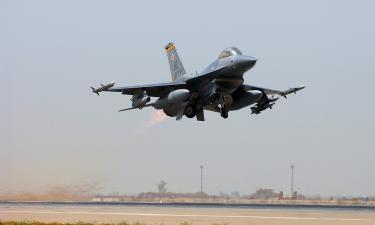Last orders for beer commercials?
Three heroes from Russian epic tales make themselves comfortable on a forest glade with a case of beer, quite prepared to have some fun. However, a three-headed fire-spitting dragon appears ready to attack them. But, of course, a man who has just sunk cold beer is invincible and so the defeated monster miserably retreats to the clinking of bottles.
If you believe this TV advert, drinking beer is a symbol of physical strength, whereas another commercial suggests it is a sign of particular intelligence, as a group of friends send the "smartest" among them for the next round.
When the law On State Regulation of Production and Distribution of Alcoholic Products was adopted, Russian legislators somehow forgot to include beer in alcoholic drinks in it. Accordingly, although advertising hard liquor and cigarettes is illegal on Russian TV, beer adverts literally pour out of the screen, urging viewers to drop everything and run for a certain four pack from the nearest shop.
And they do. Russia has been experiencing a genuine "beer revolution", as some people like to say.
When you walk around in Moscow, it is hard to avoid groups of teenagers guzzling beer in amounts that would set a world record in a Munich beer tent. Very few men play dominoes in apartment block yards these days. An increasing number of them seem to find consolation in two-litre bottles of strong beer. Moscow's once pristine metro trains now clatter with empty beer bottles in the evening.
In short, Russia, a traditional vodka drinking country, has discovered beer; unsurprisingly, this is fraught with alarming consequences.
This is true despite brewers' assurances that beer's sudden popularity is a blessing. According to them, the beer boom should serve to develop the drinking culture in Russia and wean the population off stronger and more harmful drinks.
At face value, this theory seems to be true in practice. Russia is nearly engulfed by both cheap Russian beers for under 20 rubles a pint ($1 equals 29.3 rubles) and elite foreign brands going for at least 50 rubles.
According to the National Alcohol Association of Russia, the country consumed 762.5 dekalitres of beer last year. Considering that Russia's population is 145 million, the average Russian consumes 52.5 litres of beer every year. In comparison, the figure for the Czech Republic, a country with a well-developed beer industry, is 162 litres per capita, which is three times more.
Nonetheless, some Russian political scientists are inclined to blame the fashionable drink for young people's increasing political apathy. For example, they point out that the turnout at the recent presidential elections was far lower among young people than the older generation. Statistics suggest that only 20% of young people are ready to defend their civil rights, and perhaps the beer revolution has played a role here.
"The young people think that beer, foreign clothes and CDs are all manna from heaven, and they don't have to do anything to obtain it," complains famous sociologist Mark Urnov. "They are convinced that nothing depends on them. They would rather go and have some beer than cast their votes at polling stations..."
These dismal assessments have finally been heard in the State Duma. Recently, the parliamentary committee for economic policy recommended amendments to the third reading of the law On Advertising, which would seriously restrict the beer trade.
If the amendments are adopted, beer adverts will be no longer seen on prime time TV, i.e. at 5-10 p.m. For the rest of the day, only adverts without people or animals will be allowed. The texts of the commercials should not imply that beer is the best drink for hot weather, that it is good for your health, improves your physical form and emotional state, or even helps you climb the career ladder. Moreover, the amendments at issue will not allow famous people - politicians, actors, pop stars or sportsmen - to appear in beer adverts.
This bill was shelved two years ago when the powerful brewing lobby pushed State Duma deputies to find "a series of internal contradictions" in the document.
However, since then, the line-up in the Russian parliament has drastically changed. The very fact that the debates around the amendments have resumed prompts the conclusion that the influence of the beer lobby has diminished to some extent. If this is the case, another ten draft laws seeking to limit beer promotion and sales might well get the chance to call time.
Subscribe to Pravda.Ru Telegram channel, Facebook, RSS!





